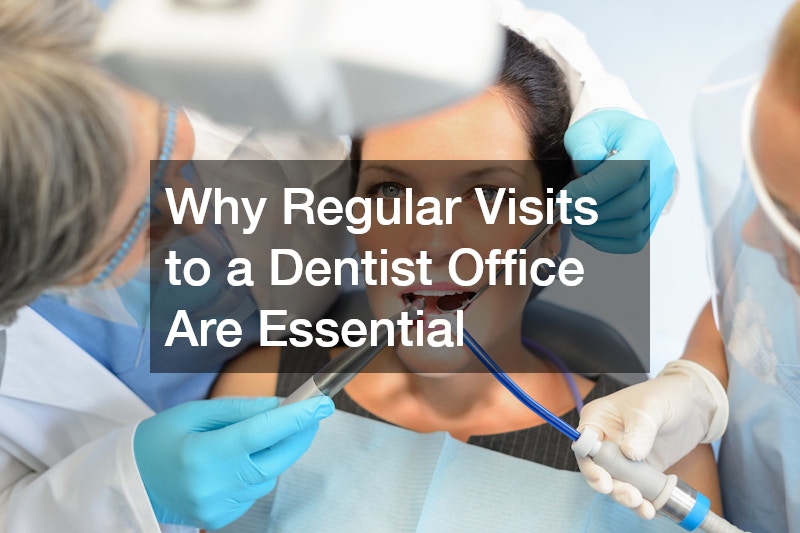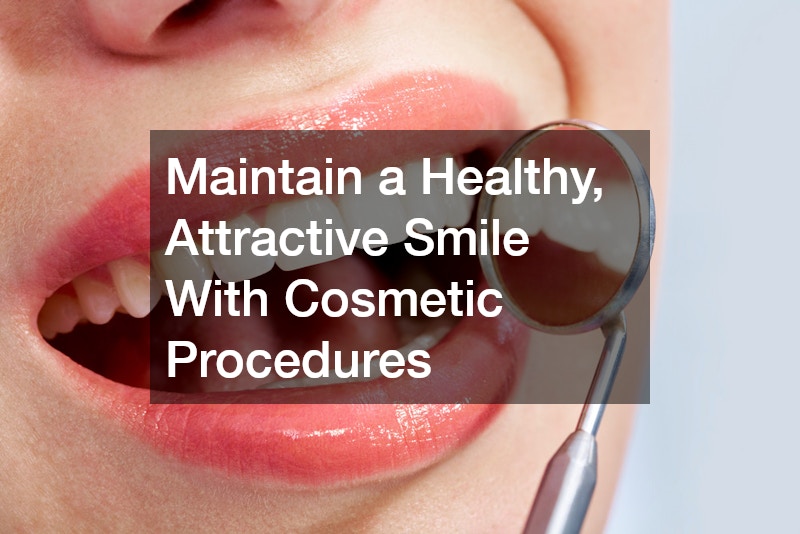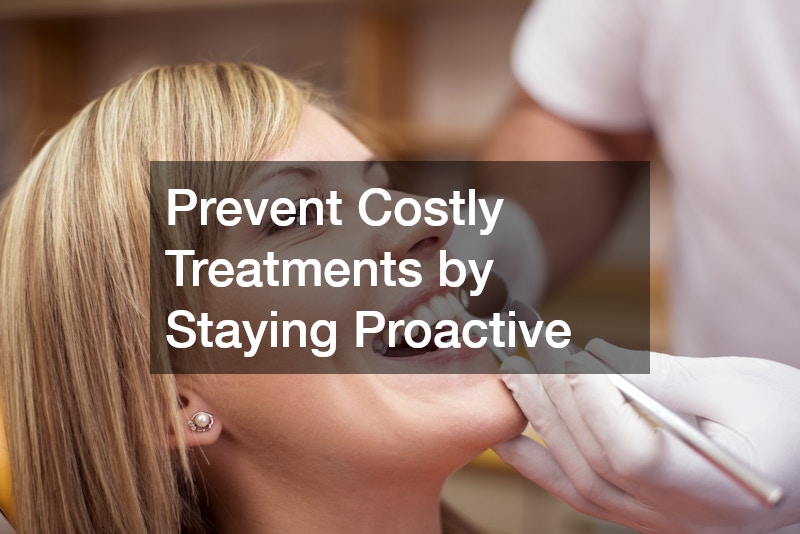
Maintaining oral health is about more than just having a bright smile. The health of your teeth and gums is closely connected to your overall well-being, influencing everything from nutrition to self-confidence. Neglecting routine visits to your dental professional can lead to preventable issues that not only affect your mouth but can also have broader health implications, including heart disease and diabetes. Oral health is cumulative—problems often start small and grow silently over time, making early attention critical. By prioritizing regular check-ups, you can ensure that small concerns are caught early, reducing the likelihood of painful and expensive interventions later.
Many people visit a dentist only when a problem arises, assuming that no symptoms mean everything is fine. Unfortunately, many oral conditions develop without obvious discomfort until they reach an advanced stage. Waiting for pain or visible damage can result in more invasive procedures, longer recovery periods, and higher costs. Proactive care, on the other hand, helps prevent complications, improves oral hygiene habits, and provides guidance tailored to your unique needs. In this article, we will explore the practical ways consistent dental visits improve overall oral health and discuss strategies for both adults and children to maintain healthy smiles for life.
Catch Problems Early Before They Escalate
One of the most important benefits of regular dental visits is the ability to identify potential problems before they become serious. Routine exams allow a dentist to thoroughly evaluate the condition of your teeth, gums, and oral tissues, detecting early signs of decay, gum disease, or other oral health issues that might not yet be noticeable. Catching problems early not only simplifies treatment but also reduces discomfort and the risk of further complications. For example, a small cavity can often be treated with a simple filling, while an untreated cavity can eventually require a root canal or even extraction. Regular monitoring also helps maintain the alignment and integrity of teeth, preventing issues that could affect chewing or speech.
To help you stay proactive, here are some actionable steps you can take to catch issues early:
-
Schedule biannual exams with your dentist to monitor changes in oral health and catch early signs of problems.
-
Keep a log of any unusual symptoms, such as bleeding gums, sensitivity to hot or cold, or persistent bad breath.
-
Maintain consistent dental care at home with proper brushing and flossing techniques recommended by your dentist.
-
Ask your dentist to perform professional cleanings to remove tartar and plaque buildup that regular brushing may miss.
By implementing these practices, you can address minor concerns before they escalate, protecting both the appearance and function of your teeth. Early intervention creates a foundation for long-term oral health and prevents unnecessary pain or costly treatments.
Protect Your Children With Preventive Pediatric Dentistry
Children require specialized care to ensure their oral health develops properly. A family dentist office provides a welcoming environment for children and can monitor growth, development, and hygiene habits from an early age. Regular check-ups help identify issues such as misaligned teeth, cavities, and early signs of gum disease. By establishing a routine of preventive care, children develop good habits that can last a lifetime, reducing the need for complex interventions later.
Emergencies can happen unexpectedly, and knowing when to contact an emergency pediatric dentist is essential. Quick action can prevent long-term damage and minimize pain, which is especially important for young children who may not clearly communicate discomfort. Parents can be proactive in maintaining their child’s oral health by understanding potential risks and learning to recognize early warning signs.
Here are some practical tips to protect your child’s dental health:
-
Schedule regular pediatric check-ups starting at the eruption of the first tooth to establish a preventive routine.
-
Educate children on proper brushing and flossing techniques, supervising them until these habits are consistent.
-
Learn to recognize signs of dental emergencies, such as knocked-out teeth, severe pain, or swelling, and know who to contact immediately.
-
Ensure your child’s family dentist office has emergency protocols and access to pediatric specialists if needed.
Implementing these steps helps children feel comfortable and confident during dental visits, reduces anxiety, and supports lifelong healthy oral habits. Proactive care not only prevents pain but also encourages a positive attitude toward oral health.
Maintain a Healthy, Attractive Smile With Cosmetic Procedures
A bright, healthy smile can significantly improve confidence, social interactions, and professional opportunities. Cosmetic procedures offered by a cosmetic dentist are not just about aesthetics—they also play a role in maintaining oral health. Treatments like teeth whitening, veneers, and dental crowns strengthen weakened teeth, restore function, and prevent further damage. Regular dental visits ensure that cosmetic treatments are properly maintained and continue to benefit both appearance and function over time.
Dental crowns are particularly useful for restoring teeth that are cracked, worn, or decayed. They provide structural support, protect against further damage, and allow normal biting and chewing. Even if a crown looks purely cosmetic, it contributes to the overall health of the mouth by preventing complications such as tooth shifting or jaw discomfort. Regular evaluations at a dental office ensure that cosmetic work remains effective and that any potential issues are addressed promptly.
Tips for maintaining cosmetic results include:
-
Schedule periodic evaluations with your cosmetic dentist to monitor restorations and overall oral health.
-
Maintain proper at-home dental care to protect cosmetic work and natural teeth.
-
Address minor cosmetic concerns early, such as discoloration or slight chipping, to prevent larger procedures later.
-
Discuss combining cosmetic enhancements with preventive care, such as reinforcing a damaged tooth with a dental crown.
By integrating cosmetic treatments with routine care, you can preserve both the health and appearance of your teeth, achieving long-lasting results and a confident smile.
Preserve Jaw Function and Relieve Pain With TMJ Care
Temporomandibular joint disorders (TMJ) are a common cause of jaw pain, headaches, and difficulty chewing. A specialized TMJ dentist can evaluate jaw alignment, bite issues, and muscle tension to create a tailored treatment plan. Left untreated, TMJ disorders can worsen over time, leading to chronic discomfort, teeth grinding, and even changes in facial structure. Regular dental visits allow for ongoing monitoring and adjustments, ensuring that treatment is both effective and sustainable.
Many dental services offered by modern practices support TMJ management, including custom mouthguards, bite adjustments, and physical therapy recommendations. By addressing jaw issues early, patients can experience significant relief and prevent more serious complications in the future.
Some practical strategies to manage TMJ issues include:
-
Schedule an evaluation with a TMJ dentist if you notice jaw pain, clicking, or restricted movement.
-
Follow at-home exercises or bite therapy techniques recommended by your dental professional.
-
Avoid habits that strain the jaw, such as excessive gum chewing or nail-biting.
-
Monitor symptoms regularly and report changes promptly to adjust treatment as needed.
Proactive care and regular monitoring improve jaw function, reduce pain, and support the longevity of your teeth and overall oral health.
Restore Damaged Teeth With Modern Solutions
Tooth damage or loss can affect not only your oral function but also your confidence and nutrition. Dental implants provide a durable and natural-looking solution for replacing missing teeth, preserving the jawbone, and preventing surrounding teeth from shifting. Implants integrate with existing oral structures and allow for normal biting and chewing, maintaining both function and appearance. Regular dental visits ensure that implants are placed correctly, monitored for stability, and maintained over time.
Timely treatment of damaged teeth prevents more invasive procedures later. Waiting too long can lead to bone loss, changes in bite alignment, and additional restorative work. By consulting your dental office proactively, you can receive personalized guidance and achieve the best possible outcomes.
Practical steps for restoring teeth include:
-
Consult with your dentist about options for replacing missing or damaged teeth, including dental implants.
-
Follow post-procedure care instructions carefully to ensure proper healing and longevity.
-
Maintain regular dental check-ups to monitor implant health and surrounding teeth.
-
Integrate restorative treatments with routine dental care, including cleanings and examinations, to maintain overall oral health.
Restorative solutions like dental implants allow you to preserve oral function, prevent future complications, and maintain a confident smile.
Maximize the Benefits of Comprehensive Dental Services
Modern dental offices provide a broad range of services beyond basic cleanings. Preventive, restorative, and cosmetic treatments can all be coordinated through a trusted dentist, offering convenience and comprehensive care. Routine visits allow you to develop a treatment plan tailored to your specific needs, addressing both current and future concerns.
Dental services may include fluoride treatments, sealants, orthodontic evaluations, and periodontal care, all of which contribute to maintaining long-term oral health. By utilizing the full range of available services, you can prevent problems from escalating and ensure your care is proactive rather than reactive.
Here are ways to maximize the benefits of dental services:
-
Maintain a checklist of recommended services and schedule them proactively to stay ahead of potential problems.
-
Ask your dentist for a personalized plan that addresses preventive, restorative, and cosmetic needs.
-
Use regular visits to coordinate multiple treatments, reducing the need for repeated appointments.
-
Take advantage of specialized services like TMJ evaluation or pediatric dentistry for targeted care.
By leveraging the full spectrum of services offered by your dental office, you can ensure your oral health is thoroughly managed, preventing complications and promoting a lifetime of strong, healthy teeth.
Prevent Costly Treatments by Staying Proactive
Regular dental visits are an investment that can save significant time, discomfort, and money over the long term. Neglecting routine care often leads to more extensive procedures, such as dental crowns, root canals, or even extractions. By addressing issues early through routine exams, cleanings, and preventive treatments, you can minimize the need for invasive procedures.
Dental care routines at home, combined with professional oversight, reduce the likelihood of serious problems and help you maintain optimal oral health. Even minor symptoms, such as sensitivity or discoloration, can signal underlying issues that are easier to treat when caught early.
Here are practical strategies for staying proactive:
-
Budget for regular visits and preventive treatments rather than waiting for emergencies to arise.
-
Follow your dentist’s recommendations for at-home dental care to prevent complications.
-
Monitor changes in your mouth, such as pain, swelling, or shifting teeth, and report them promptly.
-
Use preventive treatments, like fluoride or sealants, to avoid extensive restorative procedures.
By investing in preventive care, you can enjoy a lifetime of healthy teeth and gums, reduce the risk of costly procedures, and maintain comfort and confidence in your smile. Preventive care also helps you identify potential issues early, before they turn into more serious problems that could affect your overall health. Regular visits reinforce good oral hygiene habits, making daily dental care more effective and easier to maintain. Over time, this consistent attention allows you to preserve both the function and appearance of your teeth, supporting long-term wellness and a confident, vibrant smile.
Regular visits to your dental professional are absolutely essential not just for maintaining oral health, but also for preventing a wide range of potential complications that can affect your teeth, gums, and overall well-being. Consistent check-ups provide an opportunity for your dentist to catch issues early, often before they cause pain or become visible, which can make treatment simpler, less invasive, and more effective. Beyond identifying problems, routine visits support aesthetic outcomes, helping you maintain a bright, healthy smile, while also protecting your children by ensuring their teeth and gums develop properly from an early age.
Additionally, these visits allow your dental team to monitor and preserve proper jaw function, address bite alignment concerns, and provide access to restorative treatments such as dental crowns, implants, and other specialized procedures when necessary. By taking full advantage of the comprehensive services offered during regular visits, you are investing in the long-term health and functionality of your mouth.
Taking a proactive approach to oral health can also save you significant time, money, and discomfort in the long run. Preventive measures, professional cleanings, and early interventions reduce the likelihood of major dental procedures, allowing you to avoid unnecessary pain and expense. Following the guidance of your dental professional, from daily dental care routines to attending scheduled check-ups, ensures that your teeth and gums remain strong, healthy, and resilient over time. Furthermore, maintaining regular visits contributes to confidence in your smile, comfort when eating, and overall quality of life. Prioritizing these routine appointments may seem simple, but it is one of the most powerful steps you can take to ensure lifelong oral health and wellness, helping you and your family enjoy healthy, happy smiles for years to come.






